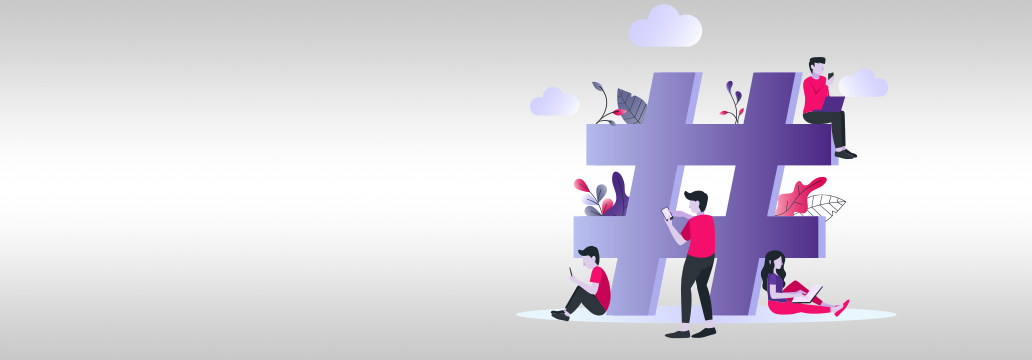06 July 2021
How to Find the Right Hashtags for Your Instagram Posts & Stories?

Since 2010, Instagram has evolved quite a bit, but one thing has remained constant: the significance of Instagram hashtags. Even in 2021, one of the easiest ways to get noticed by new audiences on Instagram is to use relevant, market-specific hashtags on your posts and stories.
When you first start applying hashtags on Instagram, you're sure to have many questions such as: Do you know which hashtags bring people to your page? What are the most often used tags in your market? How many hashtags do you use on Instagram in a usual post? To answer all these questions, you have to have proper knowledge of Instagram hashtags and their usage. And if you don't know the answer to these questions, you've come to the right place. In this 5-min read, we have listed out some points that will help you in choosing the best hashtags for your posts;
Keeping It Relevant:
The primary objective for adding hashtags is to expand the number of audiences; that is why we use trending hashtags on Instagram. However, while using those hashtags, you have to keep in mind that they offer value to your brand. As a result, if your hashtag isn't conveying information related to your business, you've already lost the primary goal. Furthermore, if you're not careful enough while choosing the hashtag, you may wind up promoting someone else through your post. Therefore, your hashtag should always be concerning your brand, which brings us to the next point. Let us see what's actually best for the brands.
Creating a Hashtag for the Brand:
"The most effective hashtag for your brand is the one that you develop yourself."
That is why big brands create a hashtag that's unique to their company when using Instagram for business, and they use it to promote their own brand and campaigns. It can be anything as essential as your brand name, campaigns or theme of the month, tagline, or name of your recently launched product.
Next, you can inform your followers about your hashtag by putting it in your Instagram profile and emphasising it in your captions and Instagram Stories.
Conducting Competitor Research:
The competitor analysis is done to achieve the following objectives:
- Getting proper knowledge about the existing brands.
- Foreseeing and predicting the demand and supply of an organisation.
- Getting a picture of future competitor strategies.
Now that we know why competitor's analysis is important, we need to look at what successful businesses in your network are doing. It is a wonderful method to get hashtag inspiration. By following different businesses that cater to similar markets, content, goods, or target audiences, we can thoroughly evaluate their content approach. We can concentrate on their top-performing posts in particular and provide us with an outlook on how we can portray our brand and products in a better manner.
Taking Help From Social Media Tools:
Most social media sites that apply hashtags also include features that show you what's popular right now. While this does not imply that you should utilise them, it is worth exploring if you notice anything related to your brand. If nothing else, you will find an alternate hashtag that works better with the ongoing trend. For example, when you are holding a contest for a creative campaign, online social media tools can suggest hashtags that will help promote your page with the help of user-generated content.
Conclusion:
We now know that Hashtags are not merely important for attracting audiences to your brand but also promoting your brand on a higher spectrum. When utilised correctly, they can be used as a spectacular instrument for expanding your reach while boosting your engagement.
Still, if you need any assistance, get in touch with our team of social media experts for robust Instagram marketing services. Think First Digital is a top-rated social media marketing agency in India with all the solutions to your problems. We are an Instagram marketing agency that helps streamline your user engagement by tracking hashtags, regulating comments, and measuring your progress with social reporting features.


